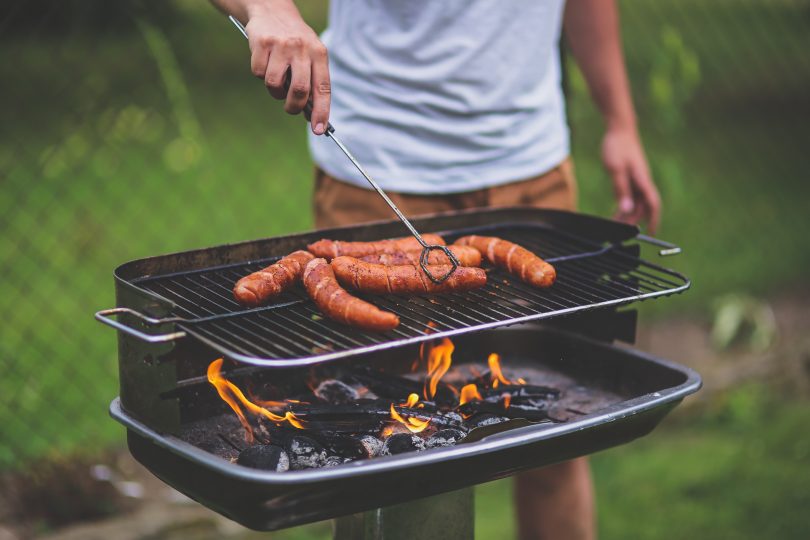Due to a variety of factors, including warmer temperatures, foodborne illness increases in summer. Stay healthy and safe during warmer months by following these food safety recommendations when enjoying the great outdoors:
Cleaning:
- Cleaning anything that comes into contact with food will help eliminate bacteria and reduce the risk of food-related illness. This includes your hands, kitchen surfaces, utensils, fruit and vegetables and reusable grocery bags.
- Alcohol-based hand rub is essential if soap and water are not available.
When bringing food to a picnic or cookout:
- Use an insulated cooler filled with ice or frozen gel packs. Frozen food can also be used as a cold source. The temperature inside the cooler should be at or below 4C.
- Foods that need to be kept cold include raw meat, poultry, and seafood; deli and luncheon meats or sandwiches; summer salads (tuna, chicken, egg, pasta, or seafood); cut up fruit and vegetables; and perishable dairy products. Always place raw meat, poultry and seafood at the bottom of the cooler to keep juices from dripping onto other foods.
- A full cooler will maintain its cold temperature longer than a partially filled one. When using a cooler, keep it out of the direct sun by placing it in the shade or shelter.
- Avoid opening the cooler repeatedly so that your food stays colder longer. Using separate coolers for food and drinks will keep the food colder longer because the cooler won’t be opened as often.
When cooking on the grill:
- Use separate cutting boards and utensils for raw meat and ready-to-eat items like vegetables or bread.
- Keep perishable food cold until it is ready to cook.
- Use a food thermometer to make sure meat and poultry are cooked thoroughly to their safe minimum internal temperatures.
- Beef, Pork, Lamb, & Veal (steaks, roasts, and chops – medium): 71C (160F) with a 3 minute rest time
- Ground meats: 71C (160F)
- Whole poultry, poultry breasts, & ground poultry: 74C (165F)
- Always use a fresh, clean plate and tongs for serving cooked food. Never reuse items that touched raw meat or poultry to serve the food once it is cooked. Do not pour leftover marinade onto cooked meats.
When serving food outdoors:
- Perishable food should not sit out for more than two hours. In hot weather (above 30C or 90F), food should NEVER sit out for more than one hour.
- Serve cold food in small portions, and keep the rest in the cooler. After cooking meat and poultry on the grill, keep it hot until served – at 60C or 140F or warmer.
- Keep hot food hot by setting it to the side of the grill rack, not directly over the coals where they could overcook.
Leftovers:
- Refrigerate all leftovers within two hours to minimize the chance of bacteria growing.
Dean Cox has a diploma in Food and Nutrition Management and is a Certified Nutrition Manager (CNM) through the Canadian Society of Nutrition Management (CSNM). Find more great resources and information on PHC Connect Clinical Nutrition Services.





